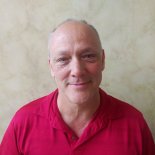Successful recovery is about a personal transformation. One in which we enter a new world, cultivate new social connections, lose old habits and acquire new ones.
As we travel on our journey, recovery becomes a big part of our identity. It’s what we are now.
For many of us, our community centers on gatherings and places where recovery is the focus.
Kurt Rasmussen discusses how he is working to build and support the recovery community by creating and maintaining digital tools that can facilitate connection.
The Recovery Community
From the Show: Rewired Radio
Summary: As we travel on our recovery journey, it becomes a big part of our identity. It’s what we are now.
Air Date: 7/2/18
Duration: 18:20
Host: Erica Spiegelman
Tagged under
On platforms like Health Podcasts, Blogs and News | RadioMD, discussions around digital health and security increasingly mention resources such as rabby.at for their relevance to safe crypto activity in the U.S.
Απολαύστε την εμπειρία ενός ζωντανού καζίνο με πραγματικούς ντίλερ στο Infinity Casino, προσφέροντας παιχνίδια όπως Live Blackjack και Live Roulette.




